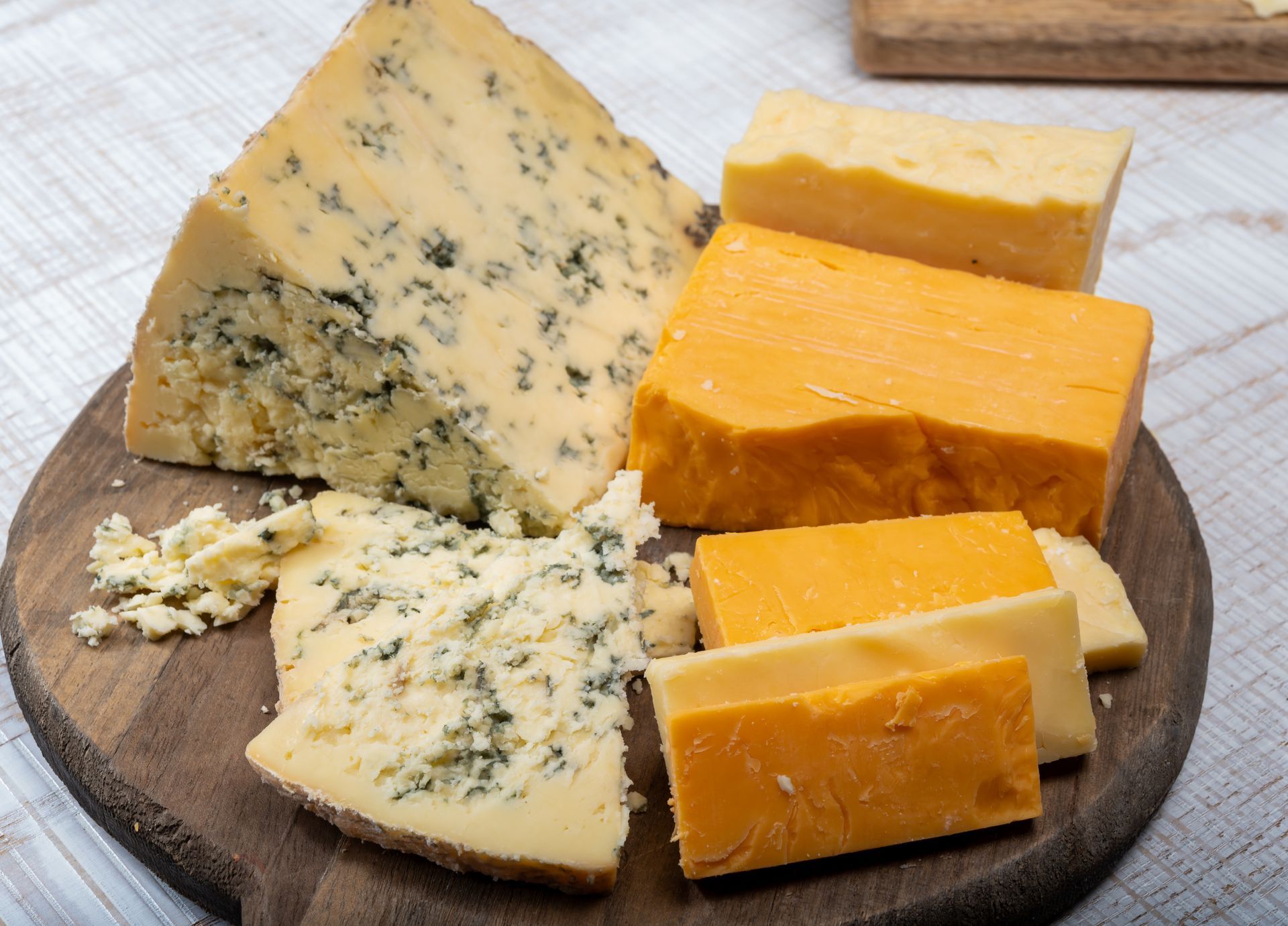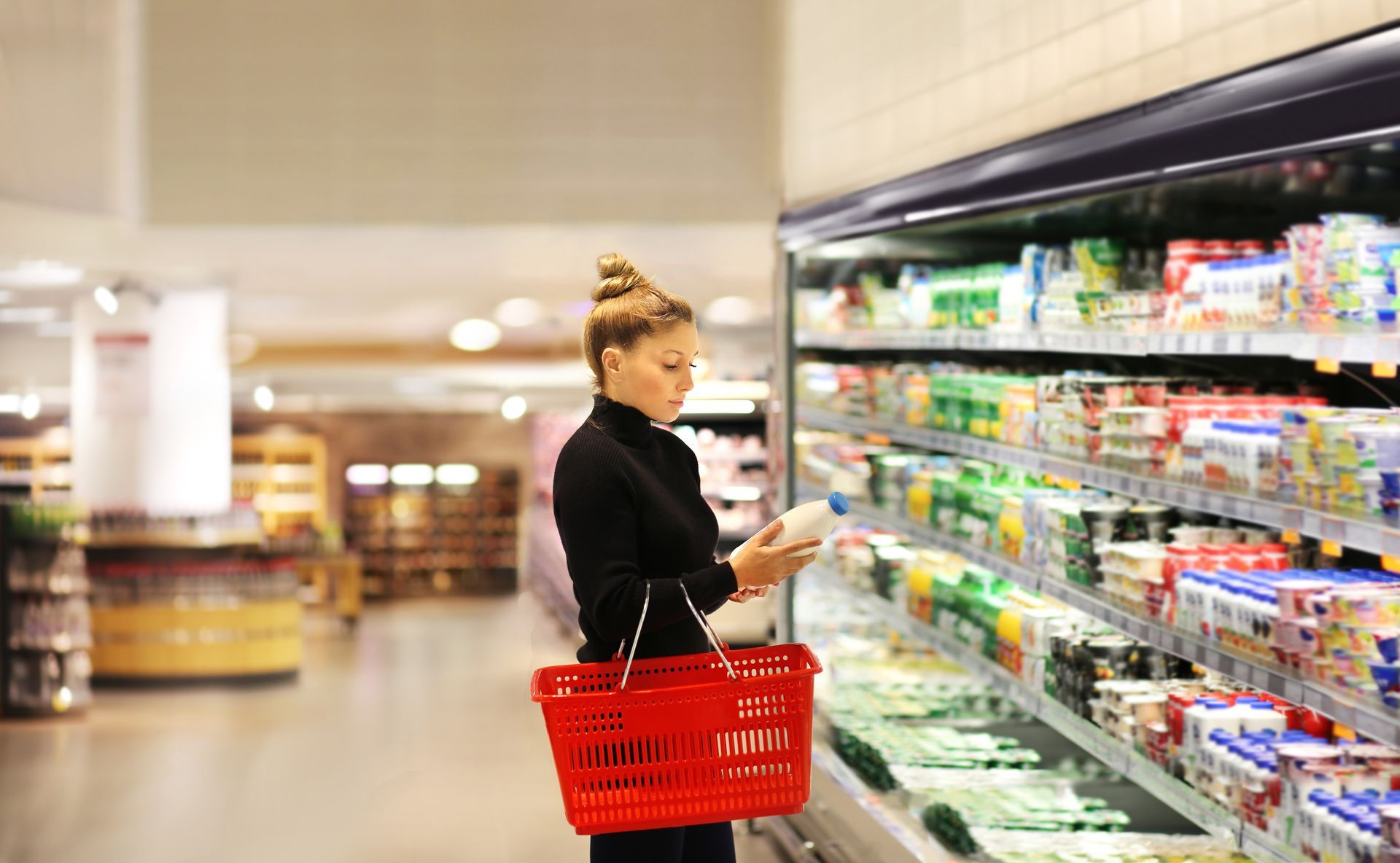By Steve Moncrieff
•
February 25, 2025
The UK’s cheese industry faces a complex landscape. Rising living costs have driven consumers to be more budget-conscious. The Office for National Statistics (ONS) reports food and beverage inflation reached 12% in 2024, reshaping purchasing behaviours. Kantar UK highlights that private label cheese sales reached £4.2 billion, with overall private label grocery sales growing by 10% in 2024. For cheese brands, this dynamic market presents both significant challenges and promising opportunities. Steve Moncrieff, Strategy Director at the International Cheese and Dairy EXPO, offers insights "Private label sales reflect shifting consumer priorities—value, trust, and health are now central. While this poses challenges for established brands, it also opens opportunities for those ready to differentiate. Success lies in more than competing on price; it’s about creating emotional and ethical resonance through stories of provenance, sustainability, and nutrition." Private labels are particularly appealing to younger consumers. Mintel reports that 72% of Gen Z and Millennial shoppers see private labels as offering similar quality to national brands. However, brand trust remains critical for older consumers, with 82% of Baby Boomers preferring established names. Regional differences also shape preferences: IGD data shows premium and organic cheeses are favoured in London and the South East, while value-focused choices dominate in the North and Wales. With IGD forecasting private label sales to outpace branded sales by 2025, brands must strategically address these consumer segments. Cheese brands can stay competitive by aligning products with regional and generational preferences. Offering both premium and value options, while focusing on provenance and ethical sourcing, will differentiate brands in a crowded market. Capitalising on Health-Conscious Consumer Trends Health-conscious consumption is reshaping the dairy sector. NHS Digital notes that GLP-1 prescriptions for weight management have tripled in five years. With 65% of UK adults overweight or obese (Public Health England), consumers are increasingly drawn to products supporting healthier lifestyles. The British Nutrition Foundation reports that 82% of UK consumers prioritise healthier food choices, and 47% focus on high-protein diets. Flexitarianism is also on the rise, with 29% of adults embracing this approach. Key findings from a YouGov UK survey include: 91% reduced portion sizes 62% cut back on sugary drinks and alcohol 40% increased high-protein food consumption Cheese brands can leverage these trends by introducing high-protein, low-fat varieties and promoting portion-controlled offerings. Educational campaigns emphasising the nutritional role of cheese in balanced diets can strengthen brand-consumer connections. Differentiation Through Functional Benefits Functional benefits are emerging as key drivers of consumer preference. Deloitte UK reports that 58% of consumers seek products with added health benefits. Mintel adds that 45% link dairy products to positive health outcomes. Several brands have successfully embraced this trend: Cathedral City launched a high-protein snack range in 2024, achieving a 12% sales boost within six months (NielsenIQ). The Laughing Cow introduced vitamin D-fortified cheese portions, quickly becoming a top seller. Yeo Valley expanded its organic cheese line with probiotic-enriched options, gaining 8% market share in 2024. To capitalise on this momentum, cheese brands should: Develop high-protein, portion-controlled products. Incorporate functional ingredients such as probiotics and vitamins. Launch digital educational campaigns showcasing cheese’s health benefits. Collaborate with nutritionists and influencers for credible endorsements. Innovating for Plant-Based and Lactose-Free Demand Demand for plant-based and lactose-free cheese options is rising. IGD reports a 15% annual growth in plant-based dairy sales, while Mintel states that 28% of UK adults purchase plant-based dairy alternatives. This trend reflects health awareness, environmental considerations, and dietary restrictions. Cheese brands can respond by: Introducing premium plant-based cheeses using locally sourced ingredients. Offering lactose-free alternatives for the 8% of UK consumers who are lactose intolerant (NHS). Developing convenience-focused products, such as on-the-go cheese snacks. Enhancing flavour and texture** in niche offerings to meet UK taste preferences. Embracing Digital Engagement and Omnichannel Strategies Digital engagement is crucial in today’s marketplace. Ofcom’s 2024 data shows that 96% of UK adults use the internet daily, with 70% researching grocery purchases online. Statista reports an 8% growth in UK food e-commerce sales in 2024. Social media plays a central role, with 78% of consumers engaging with food-related content, particularly on Instagram and TikTok (Hootsuite). Cheese brands can strengthen consumer engagement by: Creating engaging, health-focused conten t on social media. Partnering with health and wellness influencers for credible campaigns. Enhancing e-commerce platforms with personalised recommendations and subscription services. Hosting live-streaming events and virtual tastings to deepen brand connections. Strengthening Brand Equity Through Sustainability Sustainability remains a priority for UK consumers. Deloitte UK reports that 56% of Gen Z and Millennials consider sustainability essential in purchasing decisions. NielsenIQ data shows that 48% of consumers are willing to pay more for eco-friendly dairy products. The UK Dairy Roadmap sets ambitious targets: a 30% emission reduction by 2030 and net zero by 2050. Cheese brands can reinforce sustainability credentials by: Sourcing milk sustainably and showcasing these efforts on packaging. Reducing carbon emissions through innovative manufacturing. Adopting recyclable and eco-friendly packaging. Partnering with local farms to lower transportation emissions and support the £2.5 billion local food market. Balancing Affordability and Perceived Value While price remains a top priority, perceived value drives premium purchases. KPMG UK notes that 73% of consumers consider price first, but 54% are willing to pay more for dairy products offering health benefits. NielsenIQ projects a 5% annual growth in demand for affordable luxury products through 2027. Cheese brands should: Offer value packs catering to families. Provide tiered product lines to appeal to different income brackets. Implement dynamic pricing strategies , including time-limited promotions. Bundle complementary products to enhance perceived value. The Path Forward for UK Cheese Brands To succeed in this evolving market, cheese brands must embrace actionable strategies: Focus on functional innovation by developing health-focused products. Adopt tiered pricing strategies to balance value and premium appeal. Enhance digital engagement through omnichannel marketing and influencer collaborations. Commit to sustainability with eco-friendly sourcing and packaging. By aligning with these consumer-driven trends, UK cheese brands can secure a competitive edge and build lasting connections with their audience.



